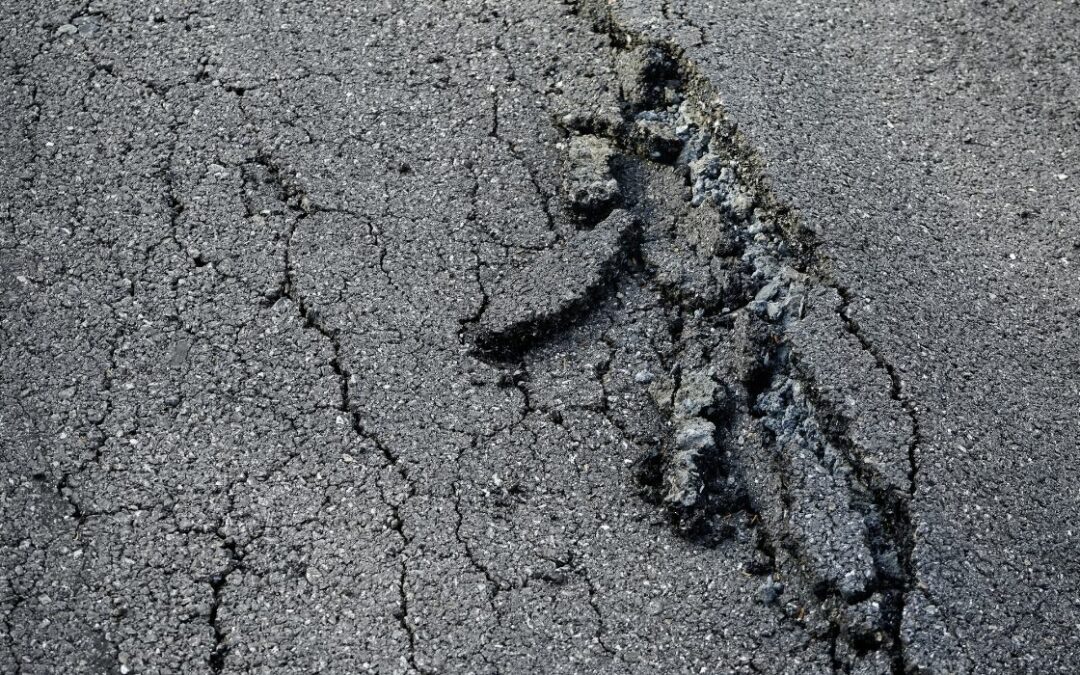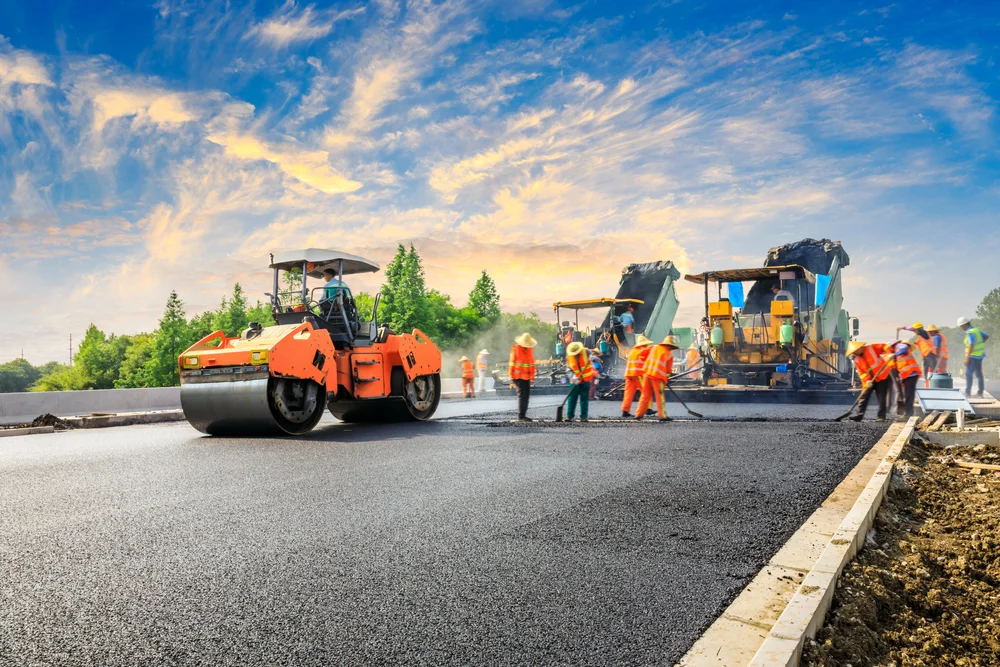Boost Your Industrial Room with Hot Mix Asphalt Paving Solutions
Boost Your Industrial Room with Hot Mix Asphalt Paving Solutions
Blog Article
Discovering the Environmental Benefits of Warm Mix Asphalt
The usage of Warm Mix Asphalt in framework jobs offers a compelling case for sustainable development and ecological stewardship. By delving right into the intricate details of its manufacturing procedures and the innovative use recycled products, a deeper understanding emerges of how this technology exceeds simple surface area applications. The environmental benefits of Warm Mix Asphalt extend far past first impacts, supplying a nuanced viewpoint on exactly how this material can lead the method for a greener future.

Lowered Greenhouse Gas Emissions
The manufacturing procedure of Warm Mix Asphalt involves heating the mixture of aggregate and asphalt binder to high temperature levels. By including recovered asphalt pavement and recycled asphalt tiles into the mix, the demand for virgin materials is reduced, leading to energy cost savings and reduced discharges connected with extraction and handling.
Researches have revealed that Warm Mix Asphalt sidewalks have a smaller carbon footprint over their life cycle compared to various other sidewalk options. The longevity and recyclability of Warm Mix Asphalt further improve its ecological benefits by reducing the need for regular upkeep or replacement, thereby preserving resources and lessening exhausts connected with repair tasks.
Energy Efficiency and Conservation
The manufacturing procedure of Hot Mix Asphalt not just reduces greenhouse gas discharges but additionally contributes dramatically to energy effectiveness and preservation initiatives. Power effectiveness is a vital advantage of Hot Mix Asphalt production contrasted to various other sidewalk kinds. The procedure entails heating up the products at heats to develop the asphalt mix, which needs less power than alternate approaches. In addition, the ability to reuse and reuse asphalt pavement further enhances energy preservation. By integrating reclaimed asphalt pavement (RAP) into new mixes, the industry conserves power that would certainly have been required to create totally new materials. Moreover, the toughness of Warm Mix Asphalt reduces the frequency of maintenance and reconstruction, causing long-lasting power savings. This long life minimizes the energy-intensive procedures included in frequent repairs and substitutes. In General, Warm Mix Asphalt stands apart as an environmentally friendly alternative that prioritizes energy effectiveness and preservation throughout its lifecycle.
Lasting Pavement Solutions

One secret aspect of lasting pavement solutions is making use of recycled products such as recovered asphalt sidewalk (RAP) and recycled asphalt tiles (RAS) By including these products into the asphalt mixtures, the need for virgin sources is minimized, leading to lower power intake and greenhouse gas emissions throughout production. Additionally, the reuse of these materials assists divert waste from garbage dumps, adding to a more lasting and round economic climate.
Moreover, sustainable pavement remedies concentrate on maximizing pavement design to get more enhance performance and longevity. Methods such as cozy mix asphalt (WMA) and rock mastic asphalt (SMA) enhance the resilience and durability of pavements, reducing the demand for frequent repair work and replacements. By executing these cutting-edge strategies, facilities designers can produce pavements that not just satisfy high-performance criteria yet likewise minimize their useful reference environmental impact.
Minimized Environmental Impact
Hot mix asphalt, in specific, provides a number of benefits that contribute to decreasing the total environmental impact of roadway framework. One vital facet is the recyclability of asphalt, which can be reused multiple times without compromising its top quality - Regrading.
In addition, the manufacturing of hot mix asphalt produces lower levels of greenhouse gases contrasted to various other pavement products, making it a more environmentally friendly option. The energy efficiency of asphalt plants has likewise improved throughout the years, resulting in lowered fuel usage and reduced emissions. In addition, the smooth surface area of hot mix asphalt decreases rolling resistance for lorries, resulting in lower fuel intake and lowered air pollution from vehicle emissions.
Contribution to Environment Change Mitigation
Warm mix asphalt plays a critical function in mitigating environment adjustment through its lasting residential or commercial properties and reduced environmental impact. One substantial contribution to climate modification mitigation originates from the power performance of warm mix asphalt manufacturing. Contrasted to various other sidewalk choices, the manufacturing procedure for warm mix asphalt eats much less power and produces reduced degrees of greenhouse gases, hence minimizing its total carbon footprint.
Furthermore, hot mix asphalt's capacity to reflect sunshine, known as albedo, aids in lowering city warmth island results. By decreasing warmth absorption and retention, hot mix asphalt pavements can reduce the demand for air conditioning in metropolitan areas, subsequently lowering greenhouse gas emissions related to energy consumption for cooling purposes.
Furthermore, the longevity and recyclability of warm mix asphalt even more improve its climate modification reduction capabilities. Regrading. The long life expectancy of asphalt pavements lowers the requirement for frequent repairs or replacements, eventually lowering the carbon discharges linked to roadway upkeep activities. In addition, the recyclability of asphalt materials decreases the need for virgin resources and lowers the ecological impact of sidewalk building and construction, straightening with sustainable methods for environment modification mitigation.
Conclusion
To conclude, the environmental benefits of Warm Mix Asphalt show its considerable payment to minimizing greenhouse gas emissions, conserving energy, and lessening environmental influence. This sustainable pavement option lines up with environment adjustment mitigation efforts, promotes source conservation, and enhances infrastructure advancement. By using recycled helpful site products, energy-efficient production processes, and durable layout, Warm Mix Asphalt plays a crucial function in cultivating a more environmentally pleasant strategy to infrastructure construction.
The manufacturing process of Hot Mix Asphalt entails heating up the mixture of aggregate and asphalt binder to high temperature levels. By incorporating redeemed asphalt pavement and recycled asphalt tiles right into the mix, the need for virgin materials is reduced, leading to energy savings and reduced emissions connected with removal and handling.
One key element of sustainable sidewalk services is the use of recycled products such as reclaimed asphalt sidewalk (RAP) and recycled asphalt tiles (RAS) Strategies such as warm mix asphalt (WMA) and stone mastic asphalt (SMA) boost the sturdiness and resilience of pavements, reducing the demand for frequent repairs and replacements. Compared to various other sidewalk options, the production procedure for hot mix asphalt takes in much less energy and sends out reduced levels of greenhouse gases, thus decreasing its overall carbon footprint.
Report this page